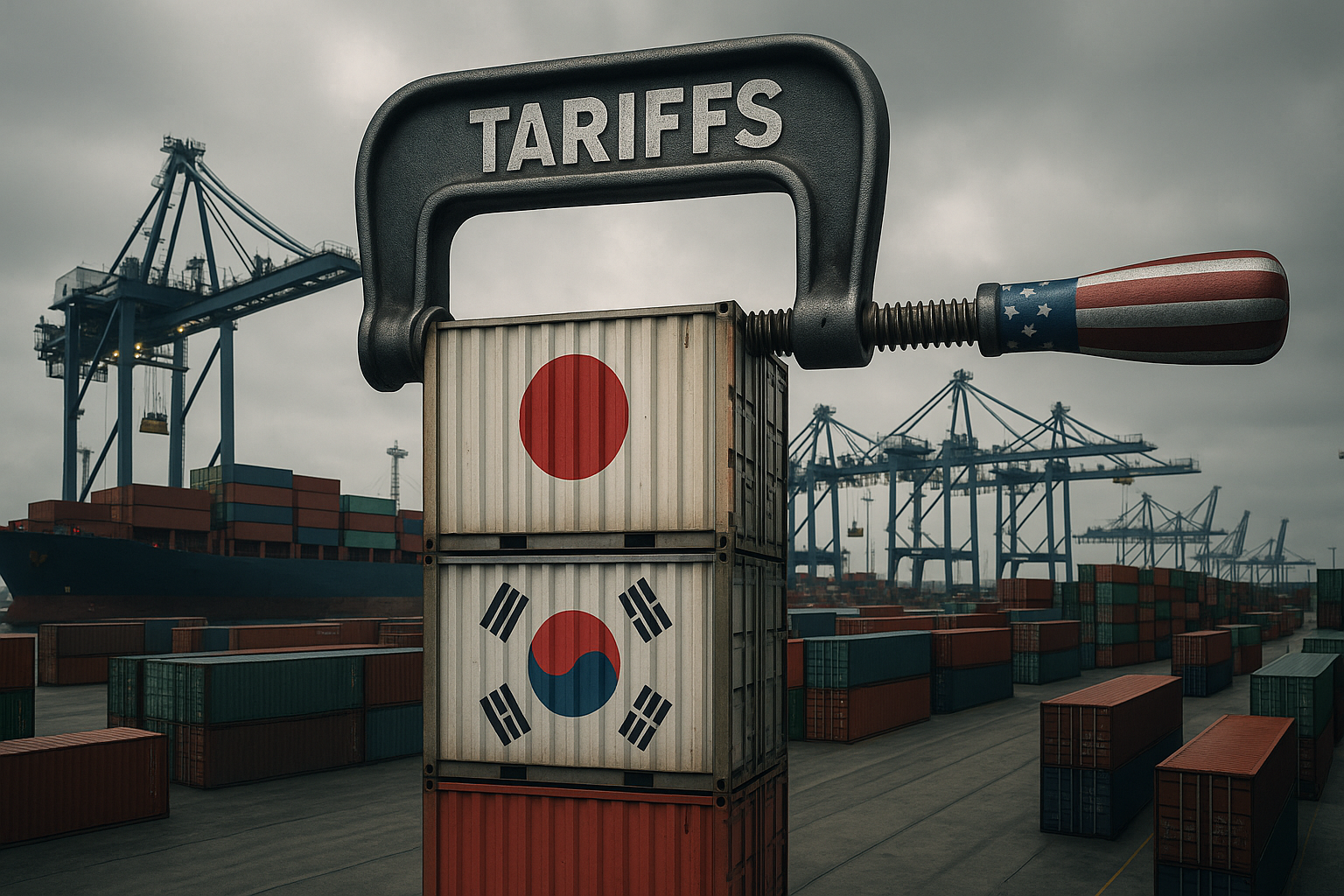Donald Trump has once again thrown the diplomatic rulebook out the window. With a caps-lock declaration that would make any international relations professor wince, the former president laid out his trade strategy with the subtlety of a sledgehammer: open your markets or face "MUCH HIGHER TARIFFS."
I've been covering trade politics since the first Trump administration, and there's something almost refreshingly transparent about this approach. No carefully worded diplomatic statements. No months of closed-door negotiations. Just raw economic leverage, applied publicly and without apology.
The Japan deal is particularly telling. Trump's willingness to reduce planned tariffs from 25% to 15% in exchange for market access reveals the real game being played. It's not about tariffs at all. It's about using the threat of economic pain to pry open foreign markets that have traditionally been difficult for American companies to penetrate.
Look, most presidents play this game to some degree. The difference? They do it quietly, through channels, with plausible deniability. Trump just... tweets it out.
For South Korea, this creates a particularly difficult dilemma. The country ships about 40% of its GDP abroad (compared to America's modest 12%). That's not just an economic statistic—it's a vulnerability that Trump seems determined to exploit.
When I spoke with several trade economists about this approach, they described it as "unorthodox but not irrational." One called it "diplomatic malpractice with potential economic benefits." Another termed it "chaos with a purpose."
The evolution in Trump's tariff rhetoric is fascinating. Remember when he insisted that "tariffs are good, actually" and that "trade wars are easy to win"? There's been a subtle shift. Now tariffs aren't the goal—they're the threat. The goal is market access.
(And yes, for those keeping score, this does represent a more sophisticated understanding of trade economics than the pure protectionism Trump sometimes espoused during his first campaign.)
South Korean officials must be having emergency meetings right now. I can practically see the worried faces around conference tables in Seoul, frantically running economic models and weighing their options.
What would you do if you were them? Cave quickly like Japan apparently did? Hold out for better terms? Form a coalition with other targeted countries?
The August 1 deadline creates a fascinating pressure cooker. Game theory in action.
For investors, this whole situation is... complicated. Volatility, thy name is Trump. Companies with significant exposure to South Korean or Japanese supply chains are obviously at risk. But firms positioned to benefit from newly opened Asian markets might be secret winners in all this.
Trump's approach here is actually a form of reverse mercantilism. Traditional mercantile theory—dominant in the 17th and 18th centuries—sought to maximize exports and minimize imports. Trump seems to acknowledge that American consumers benefit from imports but demands reciprocity in access. There's a coherent economic logic hiding behind the ALL CAPS tweets.
The most remarkable aspect might be how Trump has reduced complex trade policy—typically discussed in dense technical language about non-tariff barriers and rules of origin—to something that fits in a social media post. It's trade negotiation as reality TV.
Somewhere in Washington, career trade negotiators who spent decades mastering the arcane details of trade agreements are watching their life's work get distilled into "HIGHER TARIFFS UNLESS..."
And yet... it might work? The discomfort many feel with Trump's methods shouldn't prevent an honest assessment of their effectiveness. Japan has already made concessions. South Korea appears to be scrambling.
Trade wars don't produce winners—just countries that lose less badly than others. The question now is who adapts faster to Trump's high-pressure tactics.
And meanwhile, the global economy holds its breath, wondering if this is just negotiating bluster or the opening salvo in a new era of economic nationalism.
I guess we'll find out soon enough.
